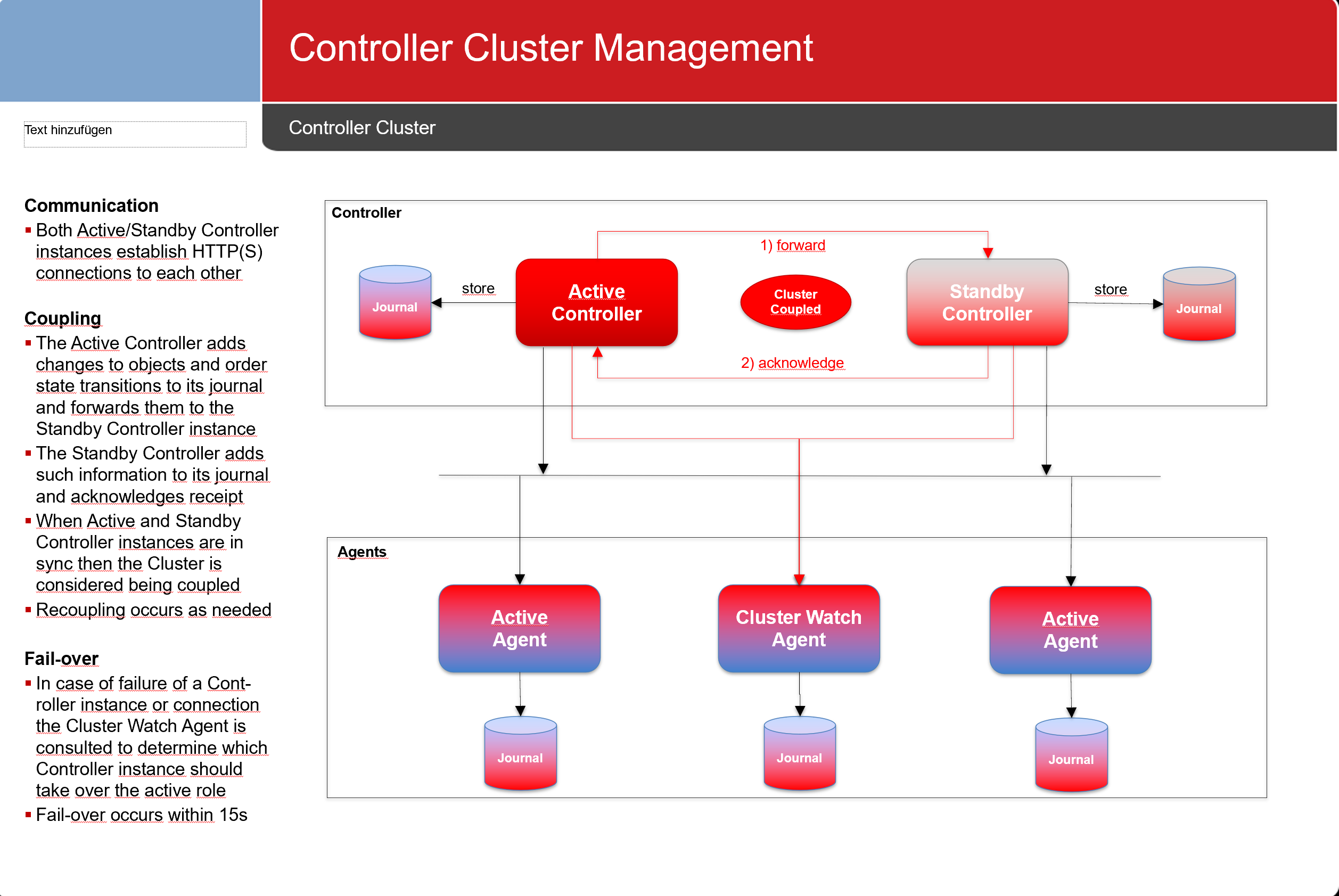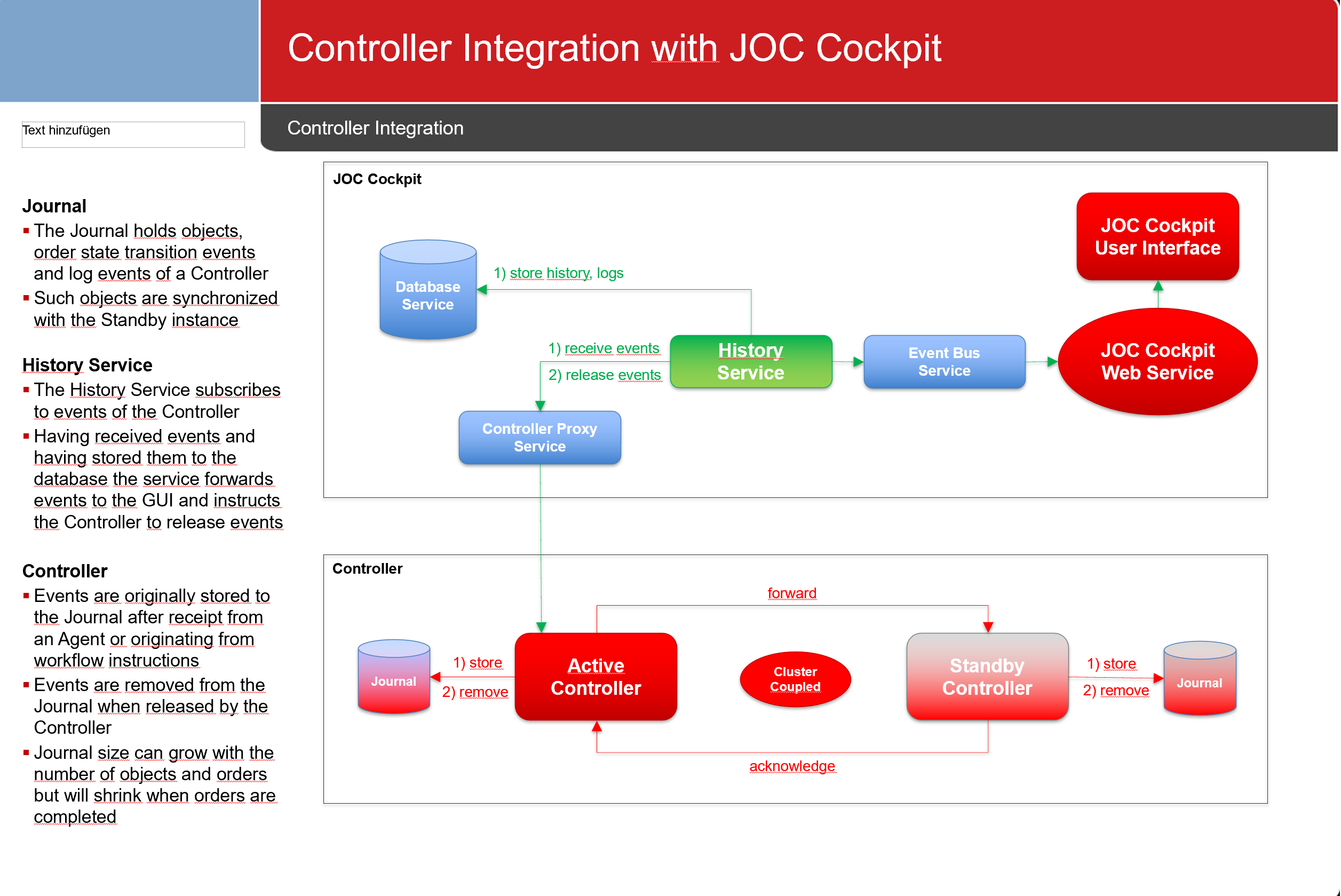Introduction
- The Controller Cluster brings high-availability fail-over capabilities for the deployment of scheduling objects and execution of workflows.
- Two Controller instances are operated on different servers to synchronize JS7 - Order State Transitions and log events.
- Automated fail-over guarantees high-availability and restart capabilities of a Controller Cluster (passive cluster).
- The Controller Cluster is subject to the agreements of the JS7 - License.
Cluster Management
The architecture applies to the clustering of two Controller instances:
- Controller instances synchronize order state information and perform fail-over (automated) and switch-over (by user intervention).
- A Cluster Watch Agent is used in a number of situations to determine the active Controller instance.
Integration with JOC Cockpit
A single JOC Cockpit instance or any number of clustered JOC Cockpit instances can be used to connect to a Controller:
- JOC Cockpit makes use of the built-in Proxy Service to connect to the Controller. This includes automatically switching the active Controller instance in the case of fail-over or switch-over of a Controller.
- JOC Cockpit receives state information from a Controller that is added to the history, e.g. log events, and that is visualized in the GUI (order state events).
Network Connections
Network connections use the HTTP protocol and can be secured by TLS/SSL certificates.
Connections are:
- bidirectional between Controller instances,
- unidirectional from JOC Cockpit to Controller instances.
Overview
Content Tools

